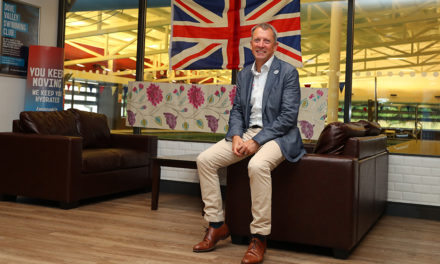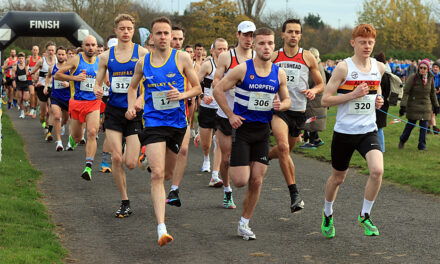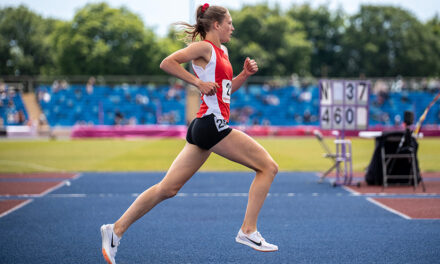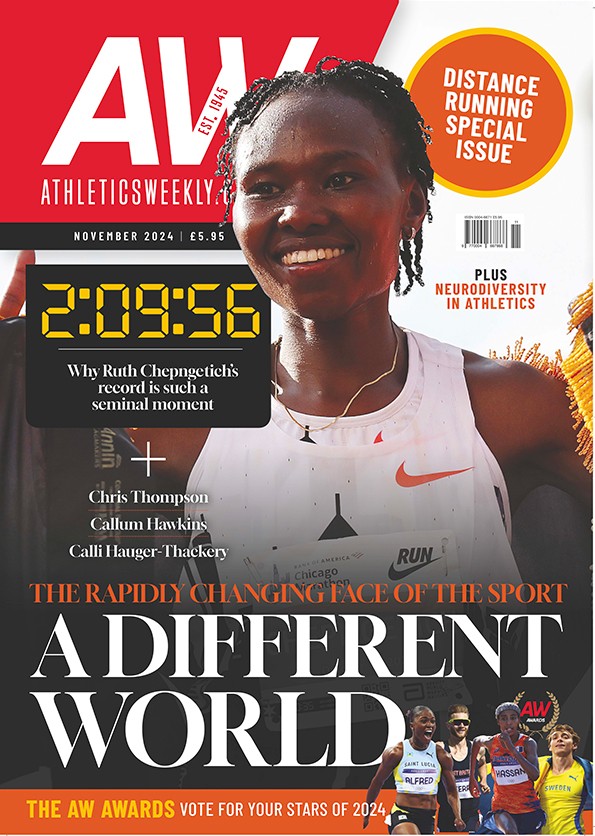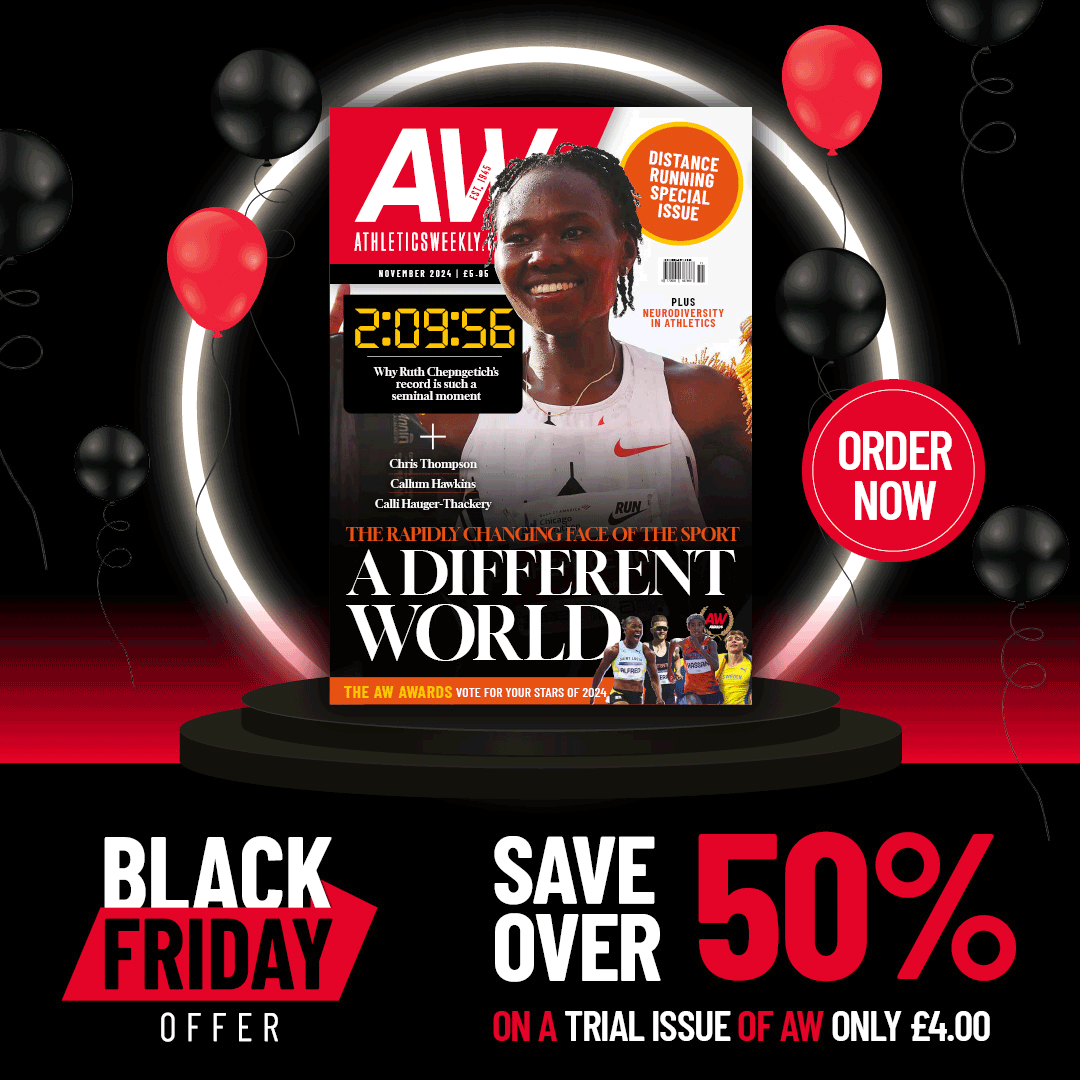British runner’s extensive career may not always have gone to plan but it has left him with an enduring love of pushing limits
Chris Thompson likes to talk, so much so that he has a term for it. “You’ve been ‘Thommo’ed’,” he laughs as we come to the end of what has been a lengthy but fascinating video call. There is much to digest.
The reason for the chat was to go back through what has been a lengthy and fascinating distance running career that began as an under-15 with Aldershot in 1995 and came to an end as a V40 runner with victory at the Great South 5km.
Let’s not forget this is an athlete who out-kicked Mo Farah to win the European under-23 5000m title in Bydgoszcz in 2003, while seven years later he was runner-up to his British team-mate at the European Championships 10,000m in Barcelona. He also competed in two Olympics, all despite a career that was regularly interrupted by serious injury.

Chris Thompson pips Mo Farah (Mark Shearman)
“Thommo” always had talent and has seen first hand how his chosen sport has changed from the lean years he experienced when he first broke through, to the rise of the current shoe brand investment in training groups and teams that he says is providing a far clearer pathway for the current generation to follow.
He has strong opinions on, amongst other things, performances like Ruth Chepngetich’s world marathon record, as well as what he sees as athletics’ unfortunate way of showing itself to the world.
We’ll come back to those later but the overarching feeling I come away from the conversation with is that I have just spoken to someone who has been battered and bruised – even left heartbroken a few times – but is still deeply in love with what he chose to devote his physical prime to. If distance running needed another promoter or spokesman, then here’s exhibit A.

Chris Thompson (Mark Shearman)
“I think there was a healthy – though others would probably say unhealthy – relationship or addiction to pushing my body from a young age,” he says as we go back to the beginning to discuss what got him into distance running in the first place.
“I remember doing a session, and I hadn’t been at Aldershot very long at all. A group of us were doing some grass reps and all I could think of was: ‘Go faster, faster, faster’.
“I was legging it, running away from everyone in every rep and I distinctly remember whooping and hollering: ‘Yeah, give me more. Give me more!’ I don’t know where it came from, but I was absolutely loving thrashing myself, and I couldn’t run hard enough.”
“My mate Brian [who had also been doing that session] said to me: ‘Do you realise how irritating that was? You were destroying us and you were almost showing off’. And I said: ‘ Honestly, I just went to this weird place of pushing my body’.
“I have a very large set of lungs – my Vo2 max is very, very big – and it’s my superpower. I must have just woken it up that day and I never looked back. I just found this relationship with the red line that I kept going back for.”

Chris Thompson (Great Scottish Run)
But it wasn’t just because he was good at it that Thompson returned to test himself time and again.
“My biggest asset in my life as a person and in sport was my resilience to never give up,” he adds. “I’m stubborn in everything, but with sport that stubbornness was born because I had such an amazing experience with running as a teenager, with my friends, with everyone I interacted with. Everything was just so positive. That was what fuelled me to keep coming back. I never fell in love with running. I fell in love with what the sport had to offer.”
There is a pause as he considers where his train of thought is headed. As it turns out, the next stop is pretty much perfect summation of what it is to tackle and train for the longer events.
“If you’re a distance runner, my word, you understand what hard work is,” he says. “Self punishment, resilience, perseverance… if you go through being a distance runner in your life for any period of time, I defy you not to come out of it a better person. Your relationship with yourself improves and when that improves, your relationship with everyone else improves, because you go through experiences like nothing else. By and large, that’s why I got sucked in.”

» The above article is an abridged version of a much longer feature that appears in the November issue of AW magazine. Subscribe to AW magazine here, sign up to our digital archive of back issues from 1945 to the present day here or check out our latest podcast below…


